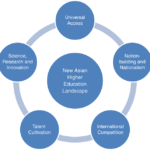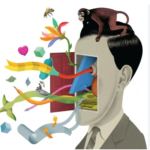Human connection is the foundation of all healthy relationships and friendships. It’s important to seek out meaningful connections with people you care about, whether they are family, friends or co-workers.
People with high levels of social connection have lower anxiety and depression, higher self-esteem and empathy, and more trust in others. This positive feedback loop contributes to a person’s social, emotional and physical well-being.
1. Health
People who feel more connected to others are healthier overall than those who don’t. They have lower levels of anxiety and depression, more empathy toward others, are more trusting of others, and experience better physical health, including a stronger immune system. This is because meaningful relationships generate a positive social, emotional, and physical well-being feedback loop.
Getting to know someone, listening to them, and caring about them is what creates connection. That is why it is so important to spend time chatting with friends and loved ones in person over lattes, dinners, or walks rather than relying on Snapchat, TikTok, or Twitter. It is also a good idea to reach out to a mental health professional if you are struggling to cultivate connections. They can help you find coping strategies and provide suggestions on ways to improve your ability to connect with other people. Whether you are dealing with PTSD, depression, anxiety, or addiction, they can be an invaluable resource to help you through challenging times and build healthy relationships. Ultimately, their support is essential to your survival and wellbeing.
2. Happiness
The happiest people tend to have lots of social connections and positive relationships. These relationships provide support and help you cope with challenges, which can boost your mood. It can also reduce anxiety, depression, and stress, and increase self-esteem, empathy, trust, and cooperative behavior. Studies show that healthy, meaningful social ties improve mental and physical health by strengthening your immune system and helping you recover from illness faster.
Happiness can be improved by focusing on the things you can control. Rather than chasing material things, which can lead to empty envy, focus on experiences that create happiness like travel, music, or dining out. You can even find happiness in everyday interactions with people, such as smiling at strangers or striking up a conversation with the person in front of you in line at the grocery store.
If you need a mood boost, skip that angsty Alanis Morissette track and opt for something more upbeat instead – research shows that listening to happy tunes can cheer you up in less than a minute. Practicing loving kindness (including to yourself) and expressing gratitude can boost your mood as well.
3. Career
Connections are vital to your career, especially in the business world. The more you have, the easier it is to get new jobs or make important decisions in your work. You can develop connections at your current job, at networking events, or online, and they are often mutually beneficial. They give you an understanding of different personalities, allow information to be exchanged quickly, and help you stay abreast of changes in the market. They also let you know who to call when there is a crisis. You need to be proactive in building your connections and keeping them healthy. This means scheduling time each week to meet with new people and maintain your existing contacts.
4. Relationships
Relationships are important to your health, not only because they provide a sense of belonging, but because healthy relationships can improve your mental and emotional well-being. They can also improve your physical health. Studies have found that individuals with meaningful relationships have less depression and anxiety, and are more likely to be resilient in the face of adversity.
However, building connections takes time and effort. It means focusing on activities that bring you together with other people, and sharing your experiences. It also means listening to others and hearing their stories. This may mean a regular phone call or video chat with your family, attending local business gatherings, and being open to meeting new people.
It’s important to remember that a connection isn’t just about proximity, but about how you treat others and the depth of your feelings. A relationship that feels one-sided will eventually feel like a dead end. A genuine connection is built on equality, not just because you care about someone, but because they care about you. The more you put in to a relationship, the stronger the bond will be.
5. Spirituality
Spirituality is a personal journey of self-discovery and connection to something greater than yourself. It doesn’t necessarily have to include religion but can be anything that gives you a sense of meaning and purpose.
Research shows that those who are more intrinsically oriented to their religious or spiritual beliefs tend to have less physiological reactivity during stressful events and may be able to control their emotions better. This is due to the fact that they can find comfort in their beliefs. It has also been found that people who are more spiritual have a higher quality of life.
This is mainly because of the fact that they have more hope in the face of suffering and death. It is important to note that a person’s spirituality can be impacted by their past experiences with religion and spirituality. It is important for a therapist to be aware of this and help their patients work through any trauma they have encountered that can affect their relationship with their spiritual side. This is done without interfering with a patient’s religious beliefs or practices.

